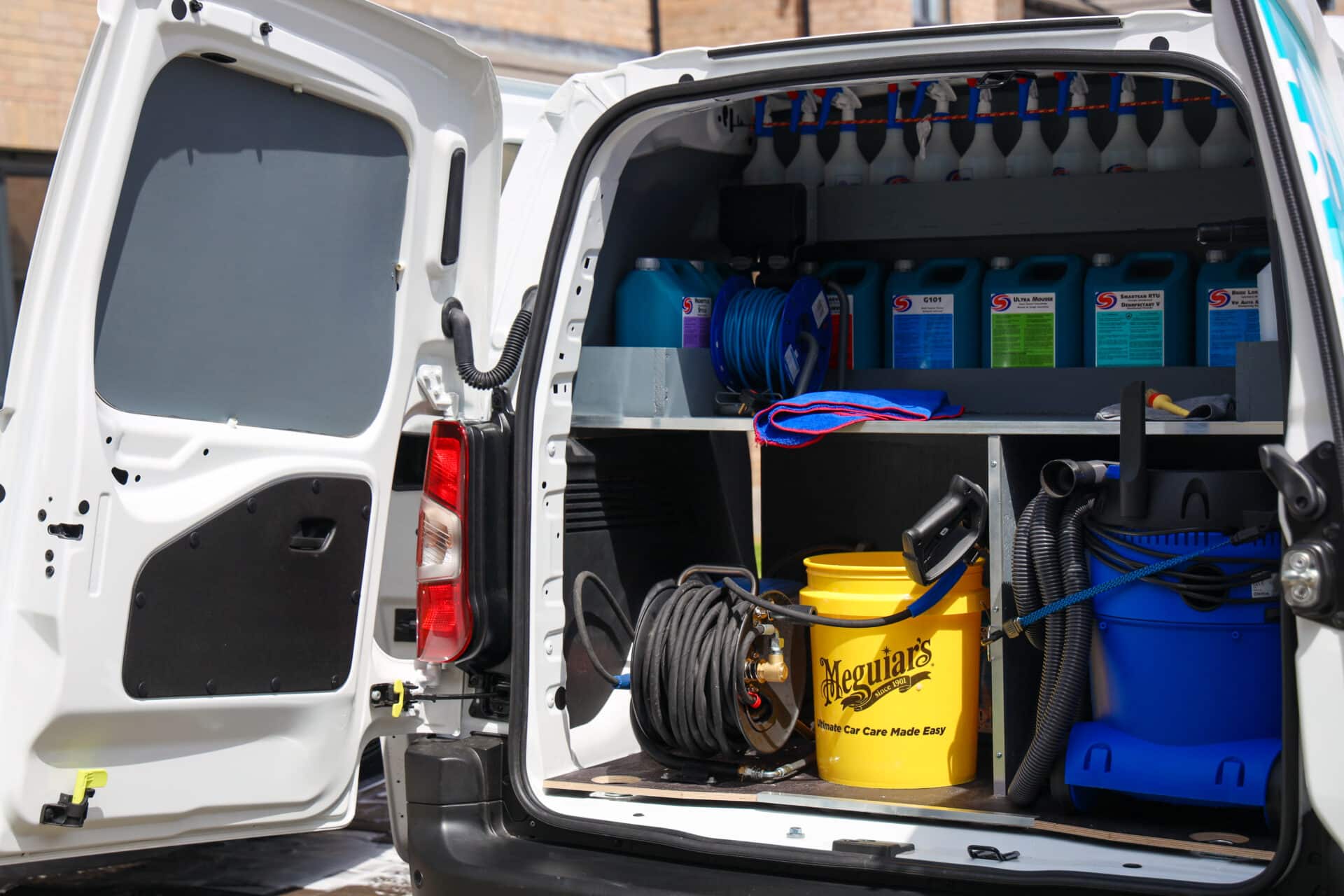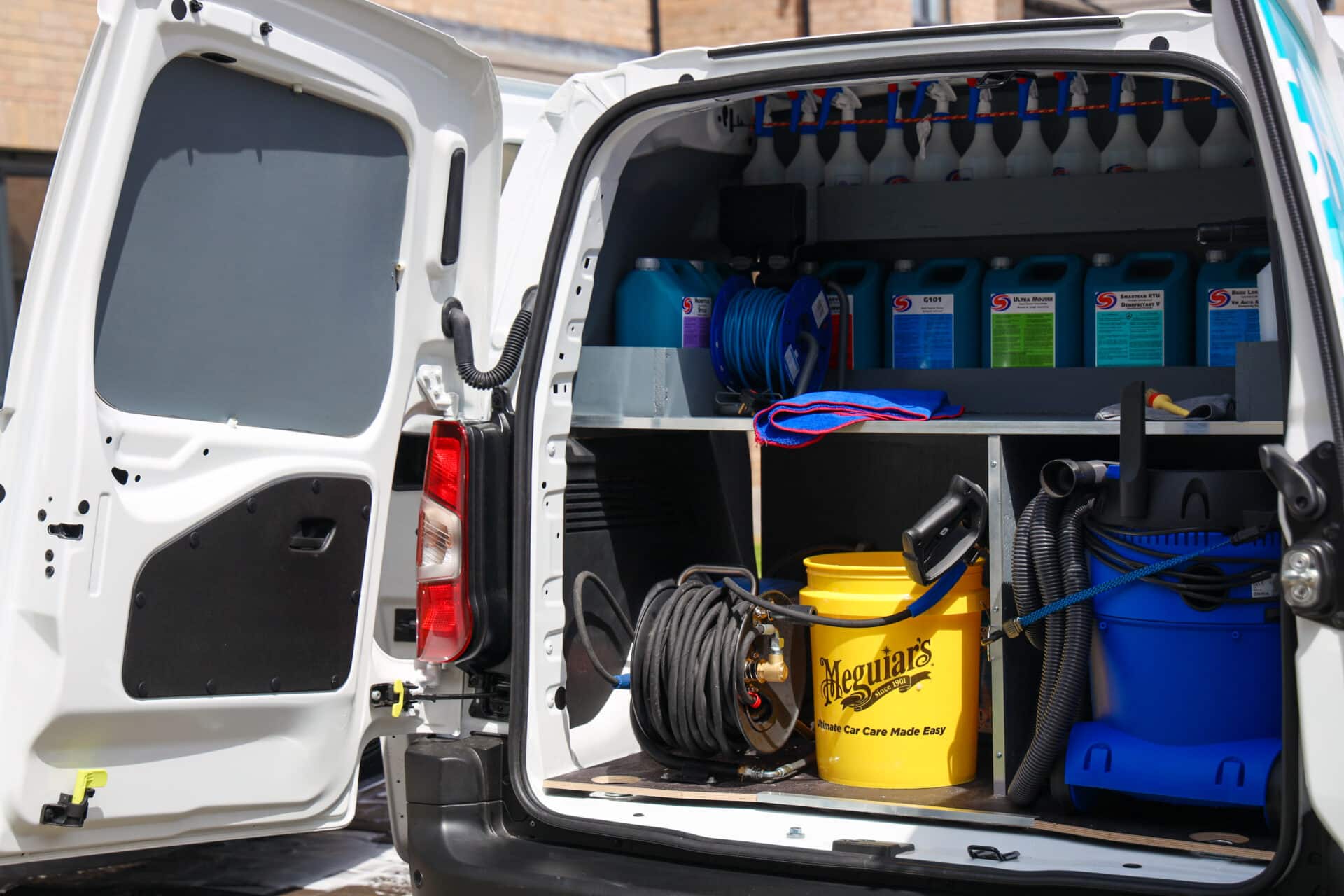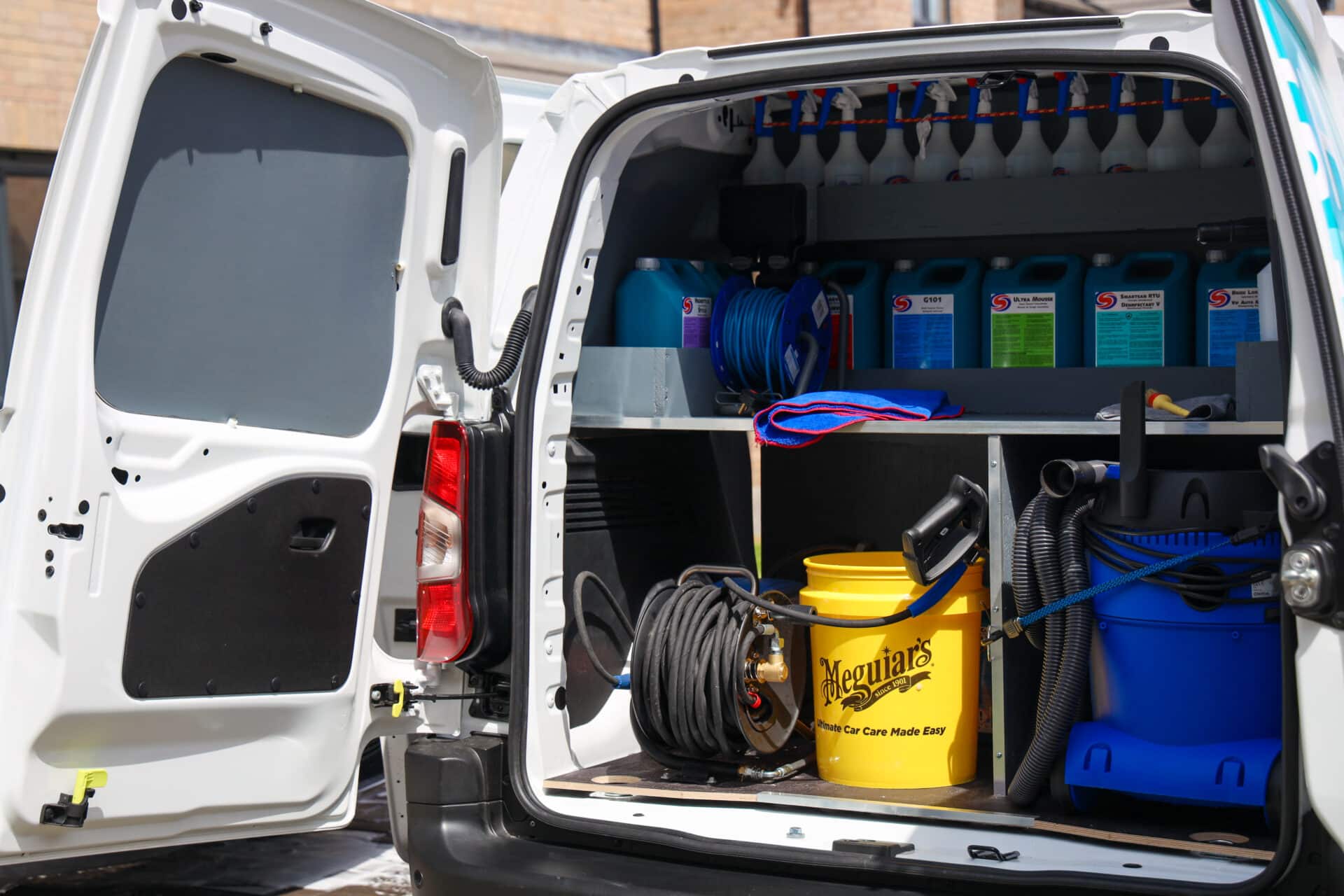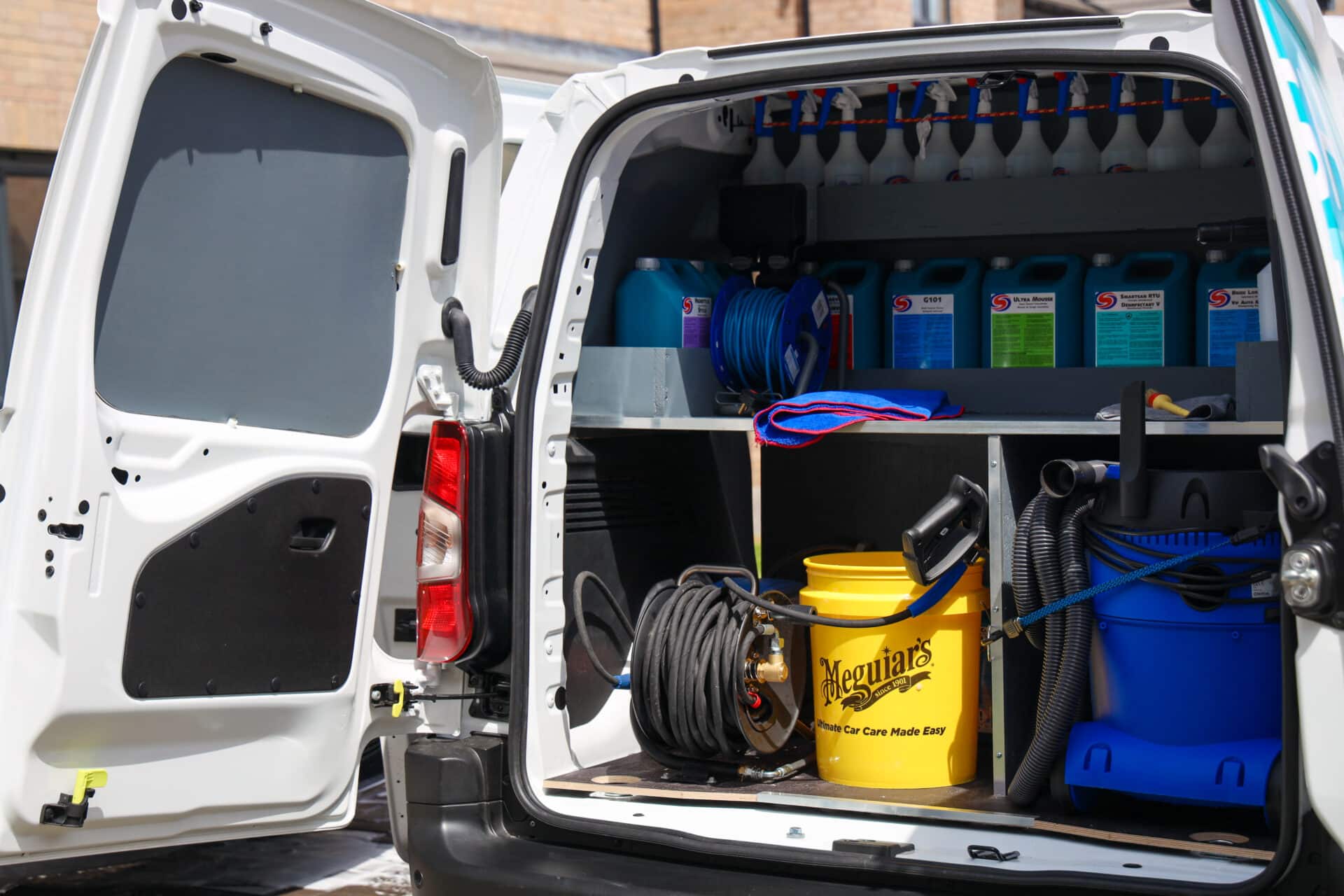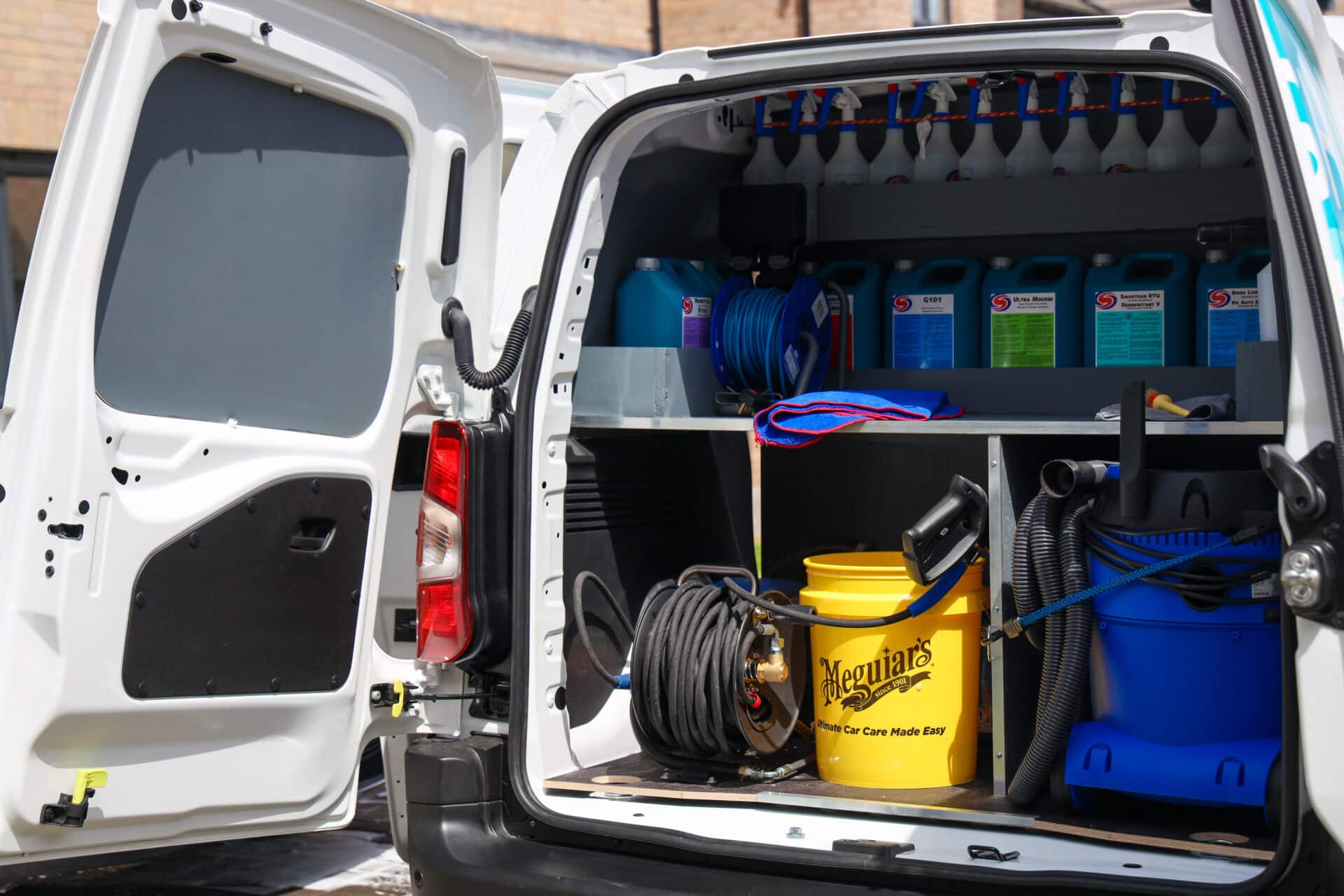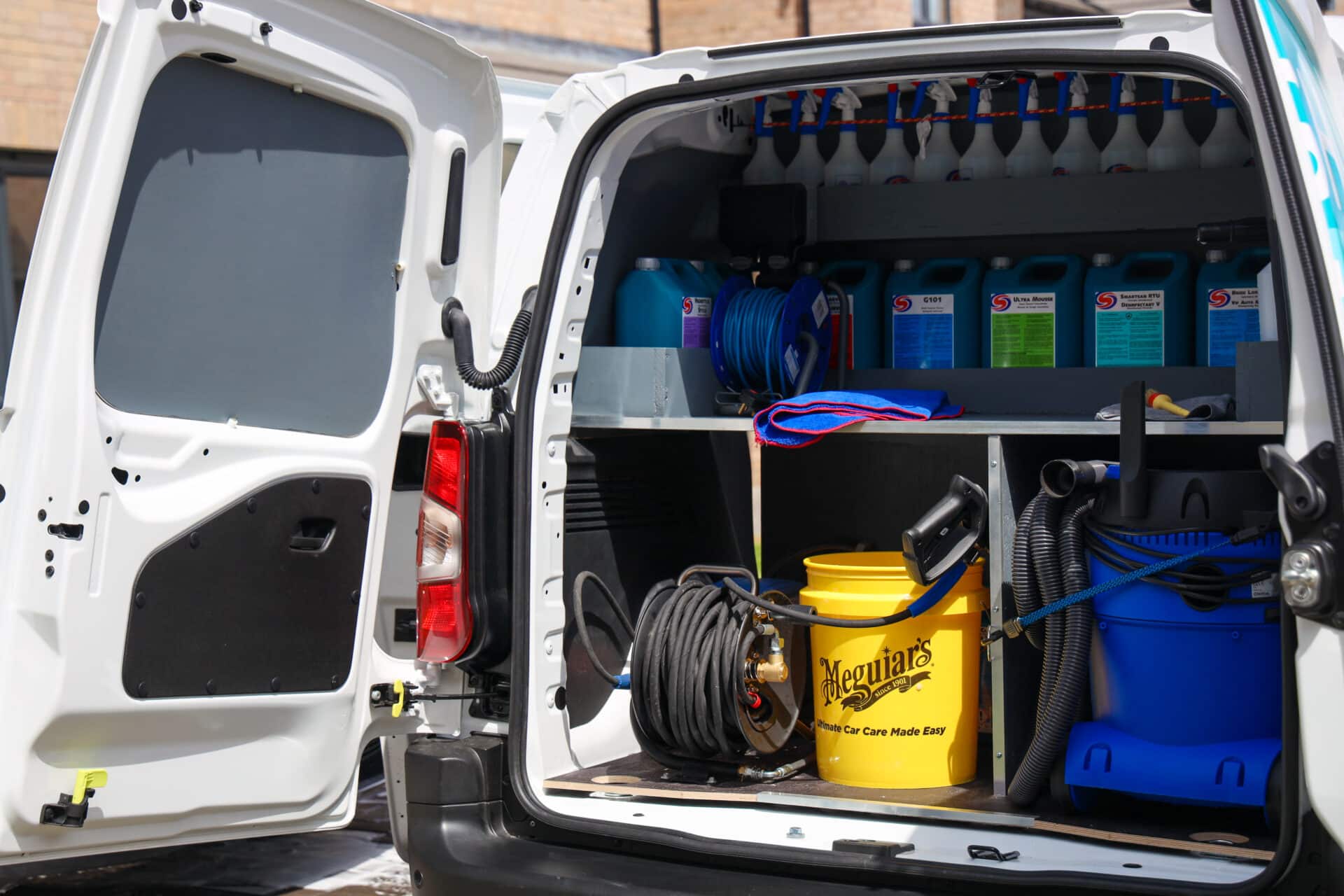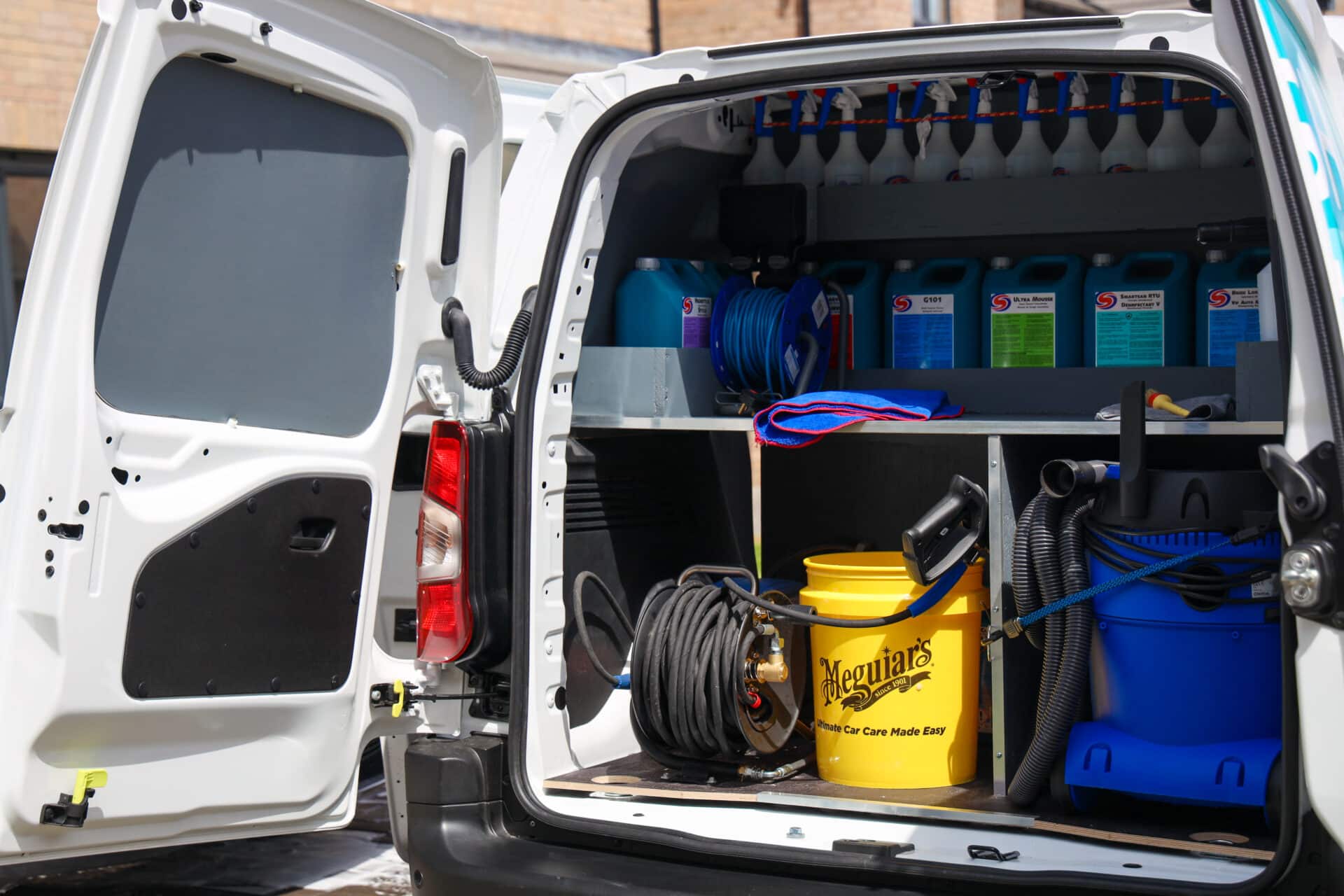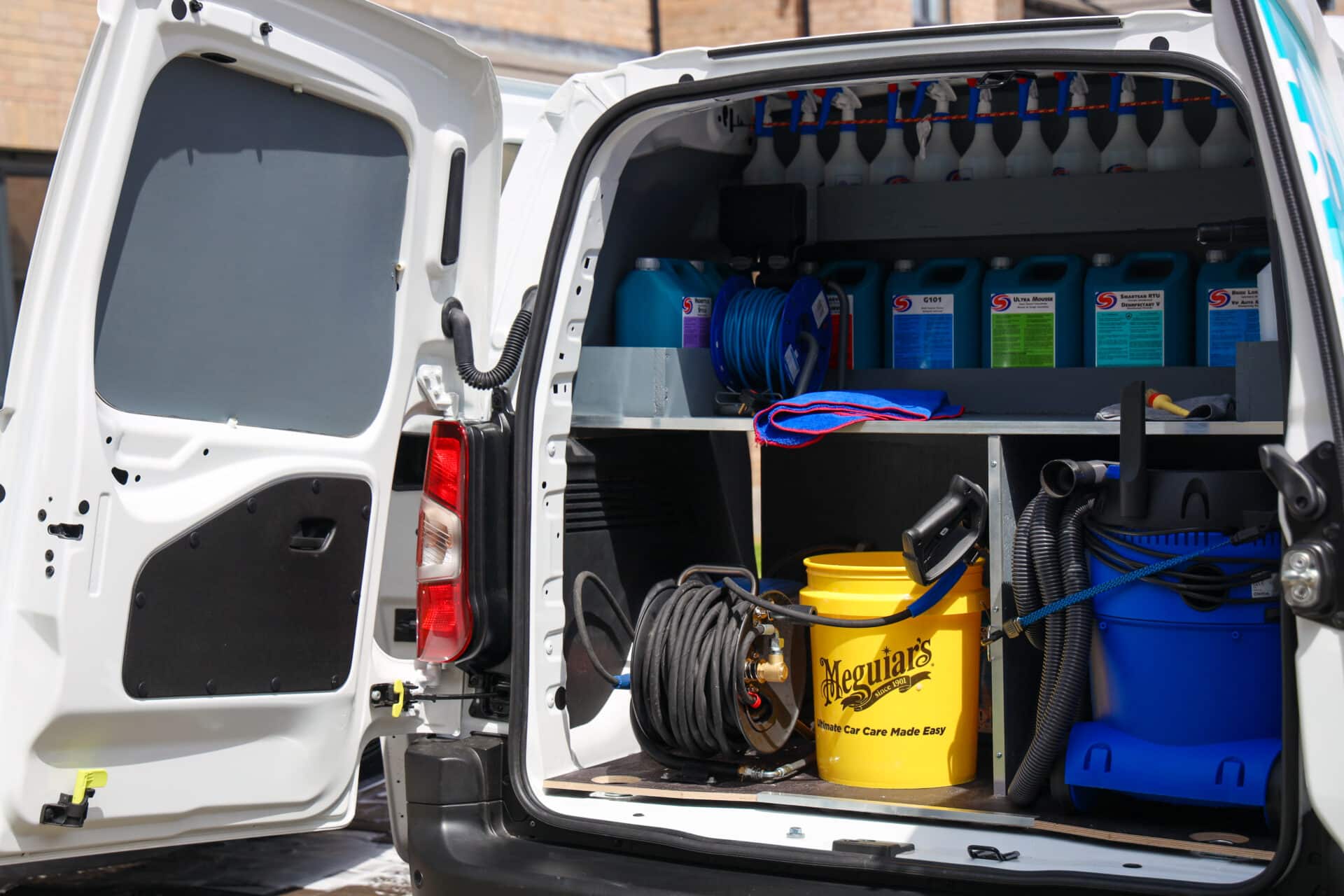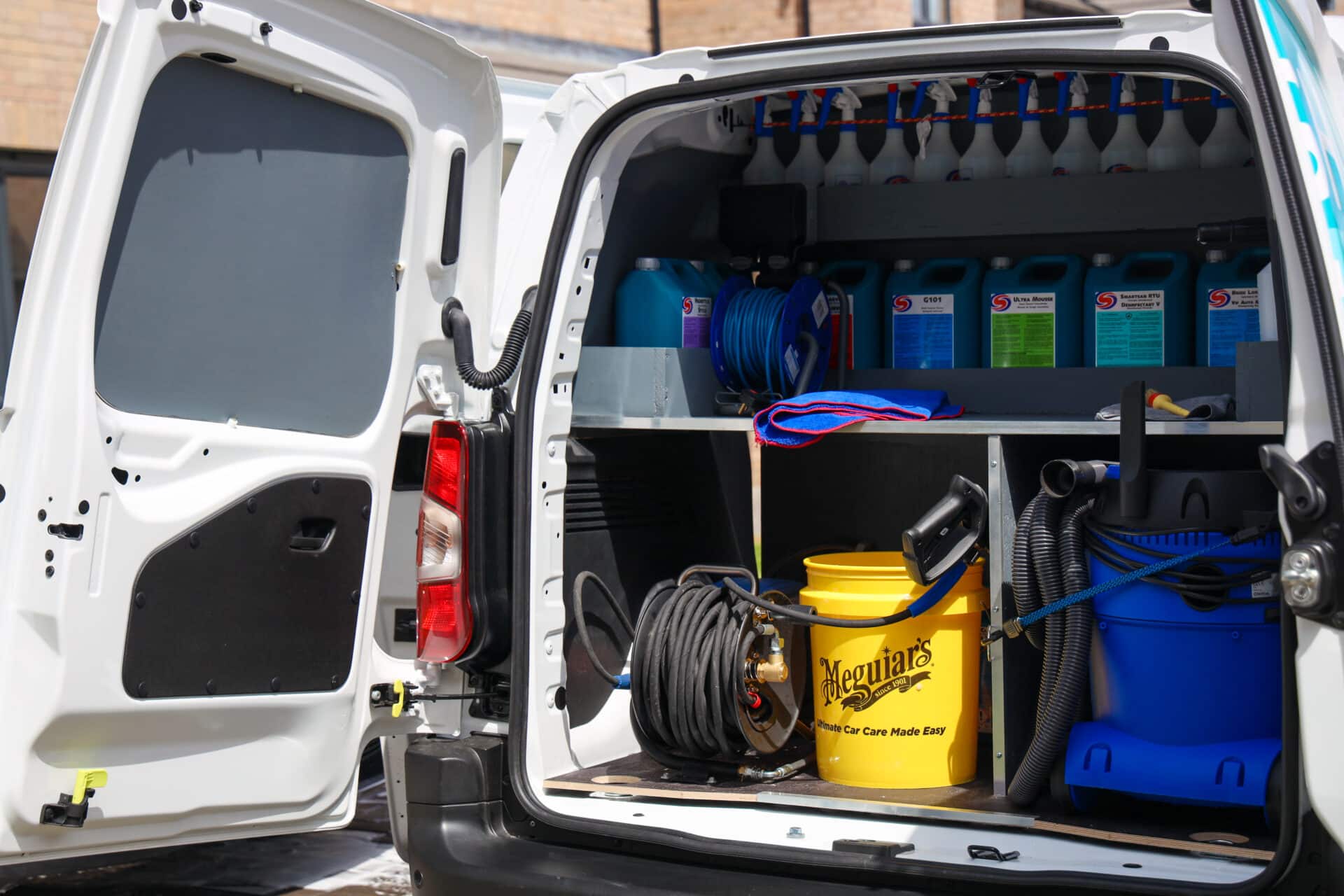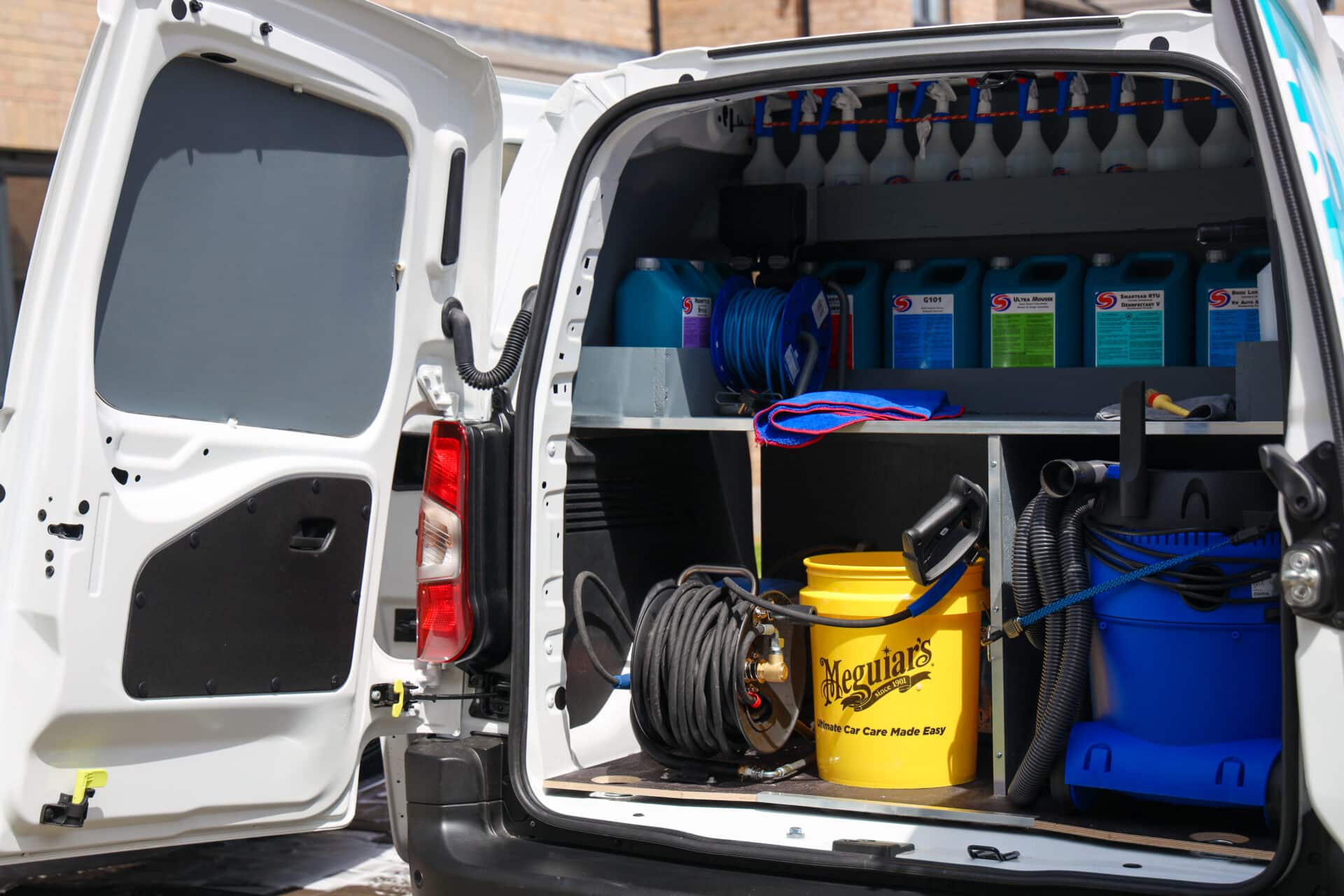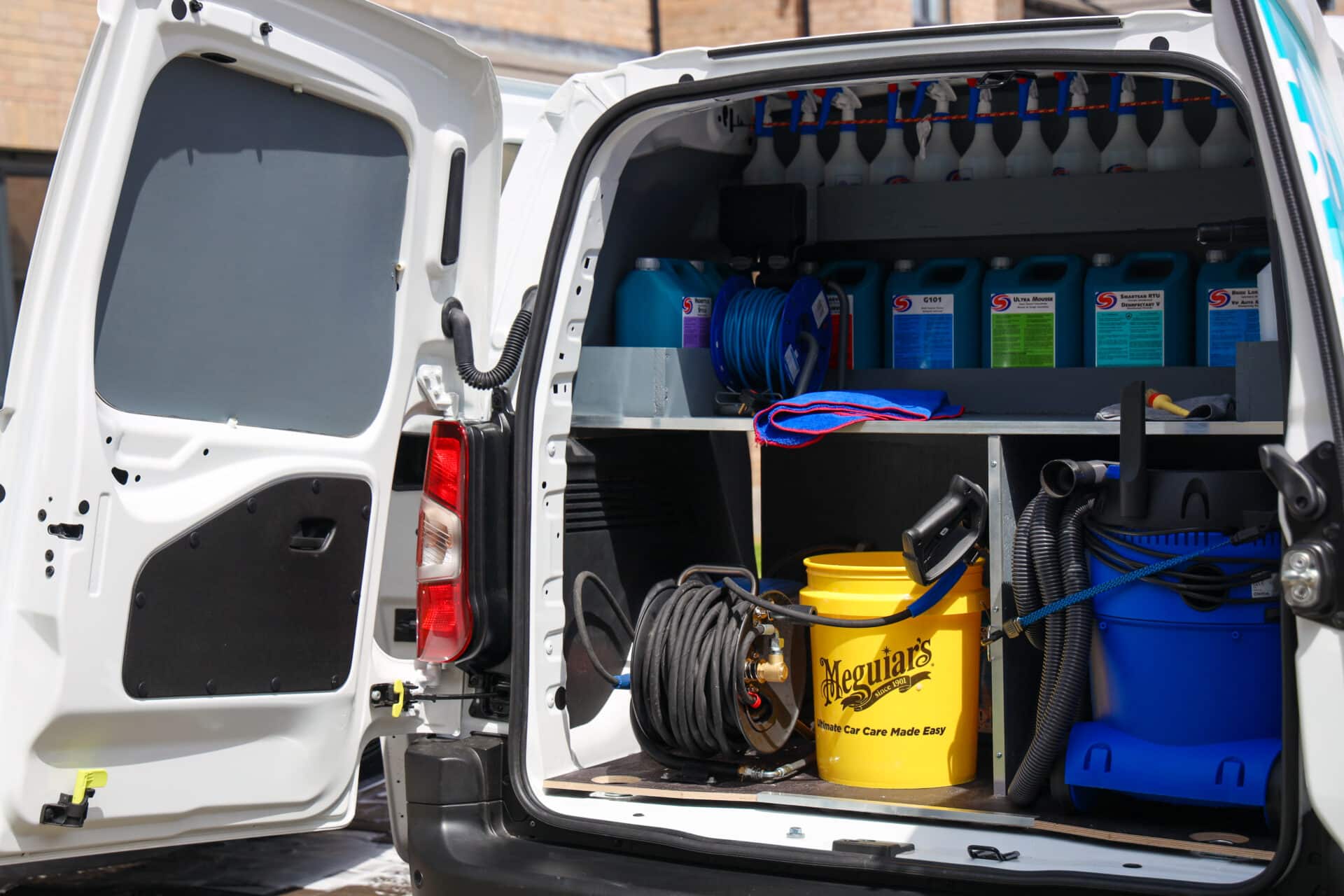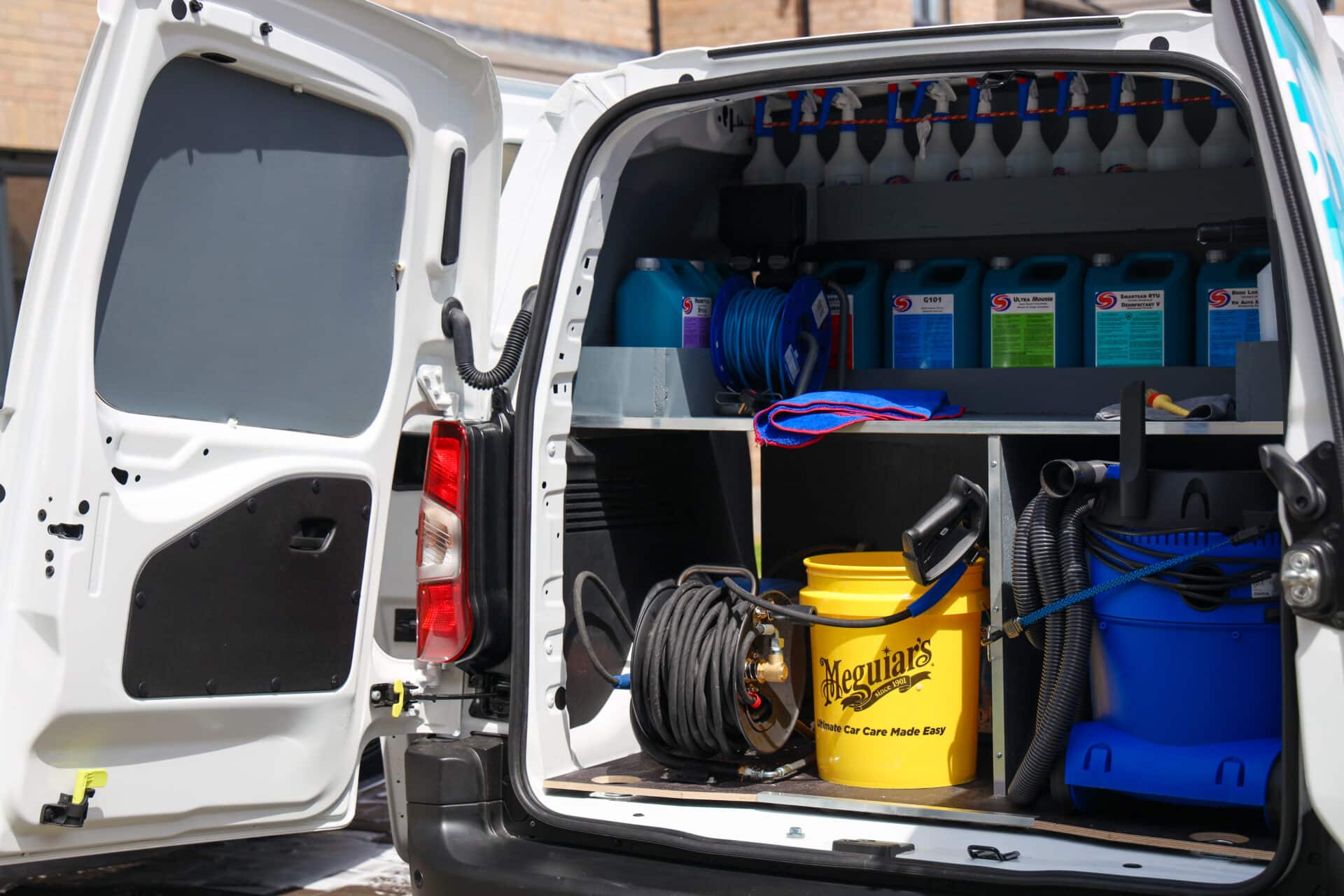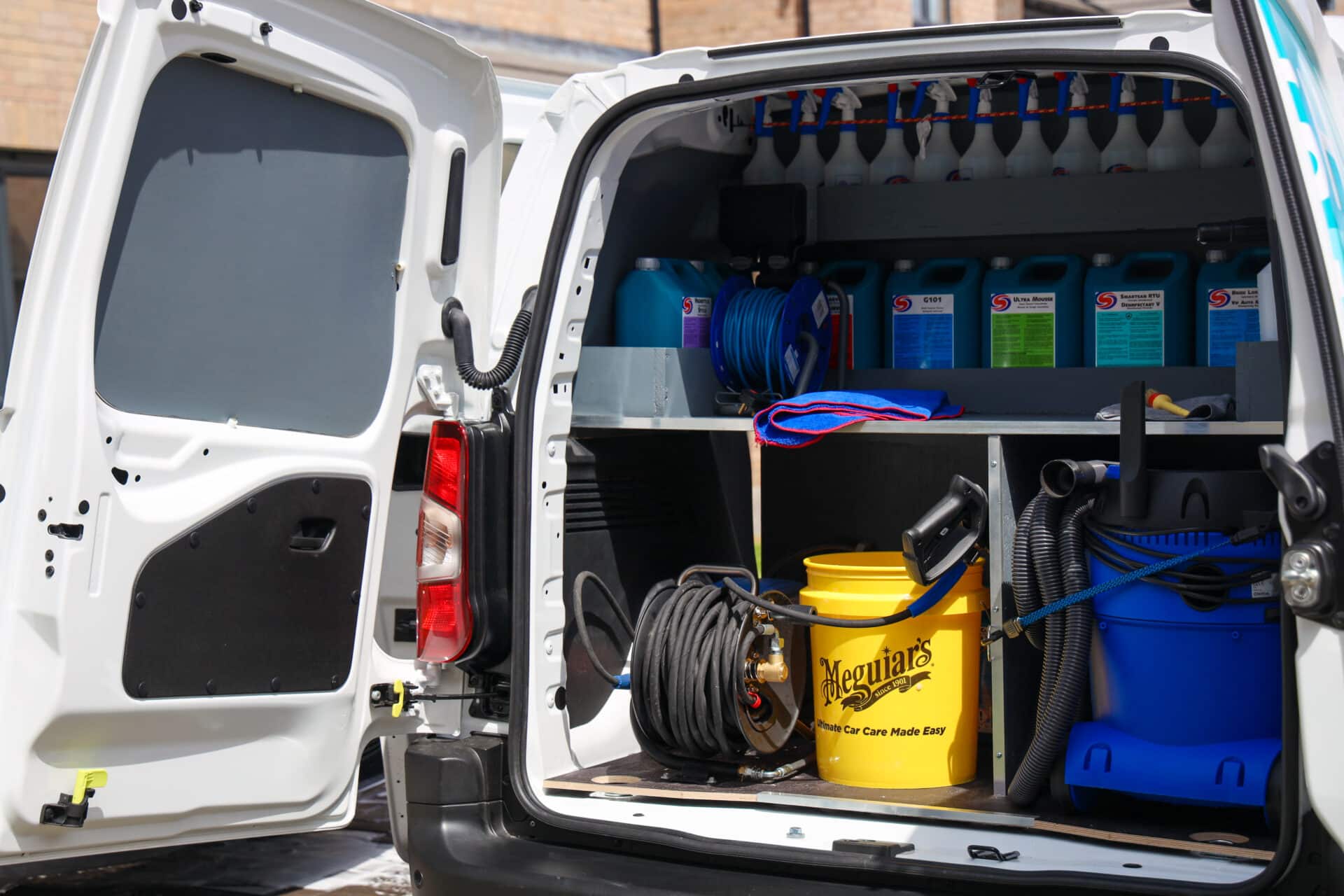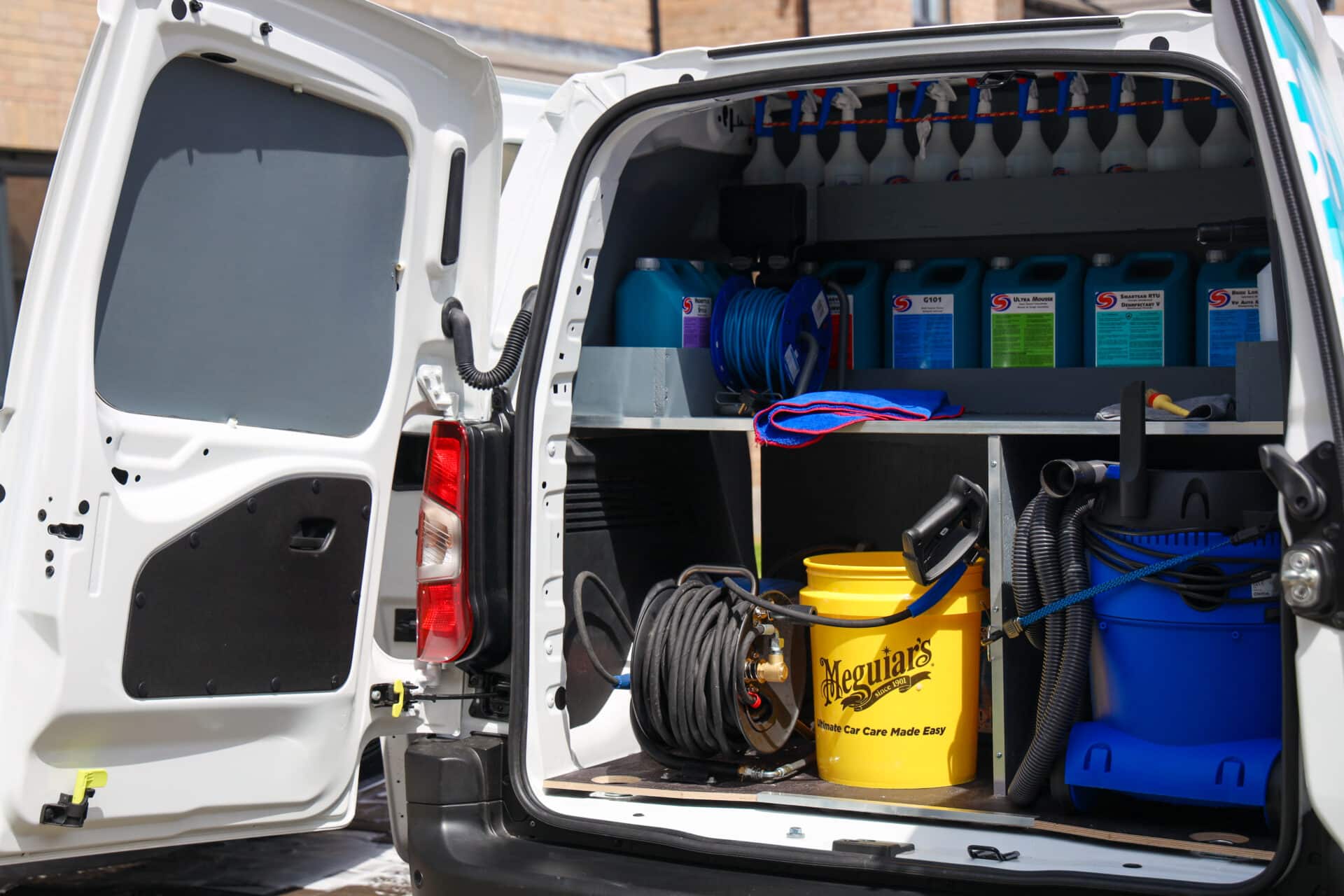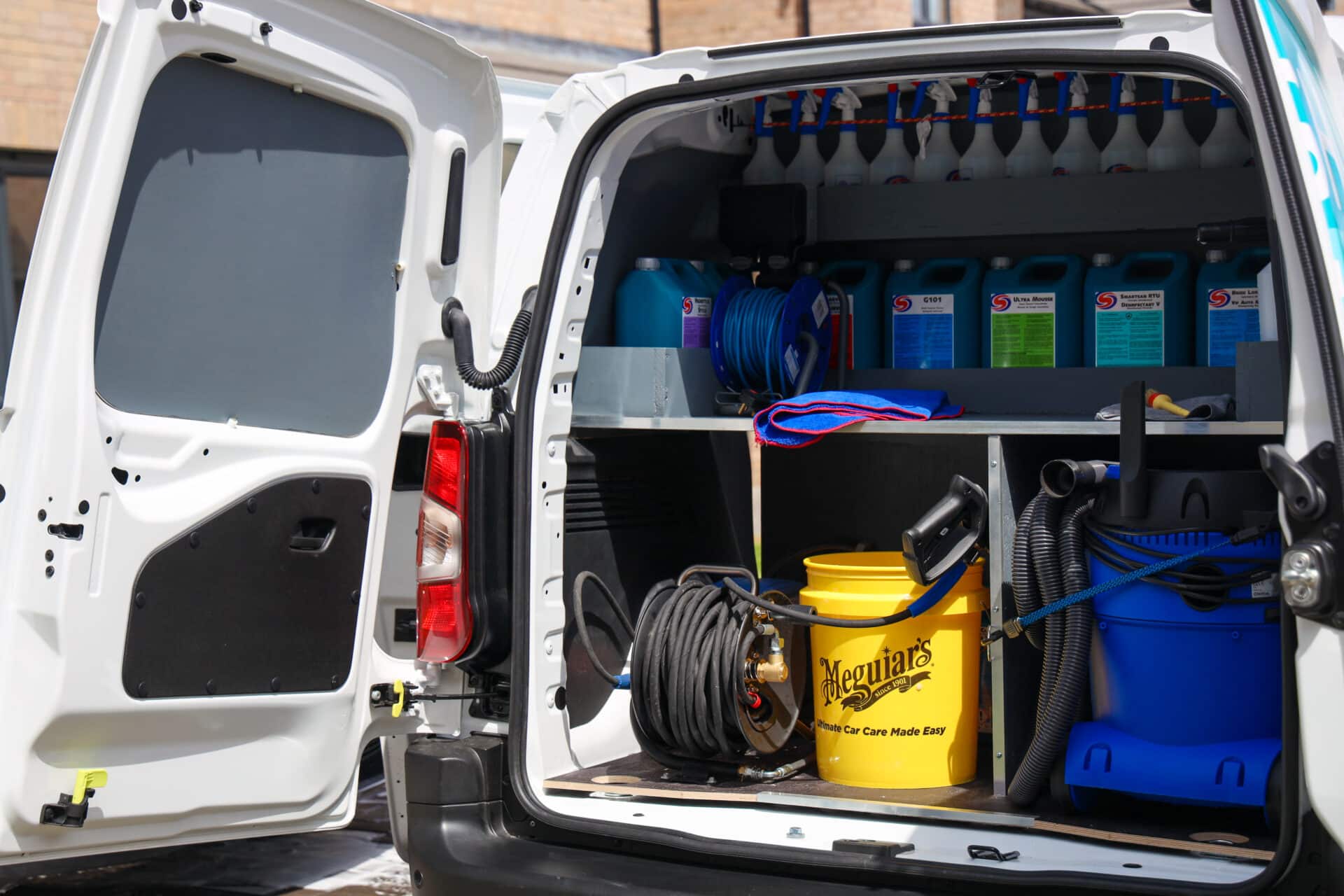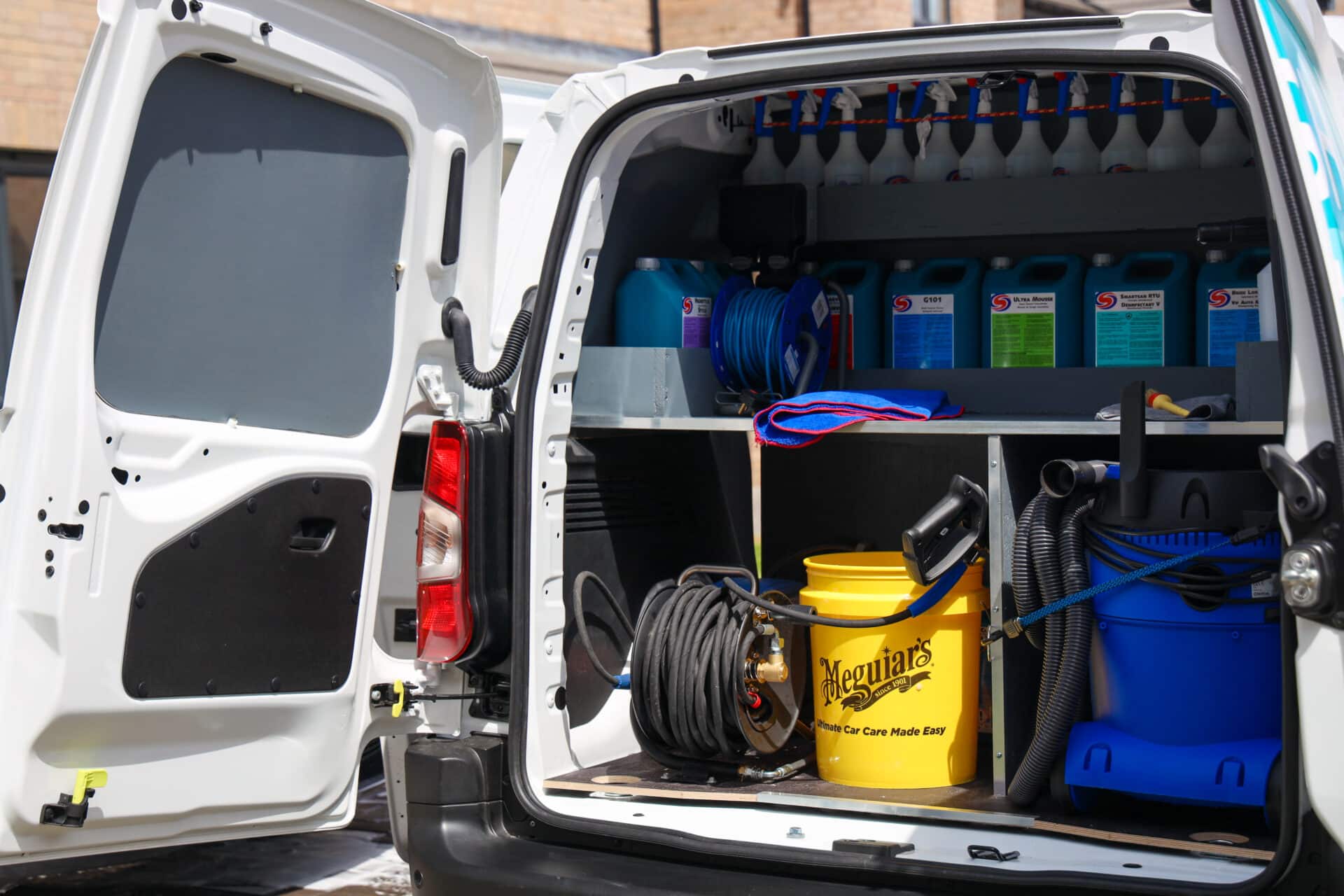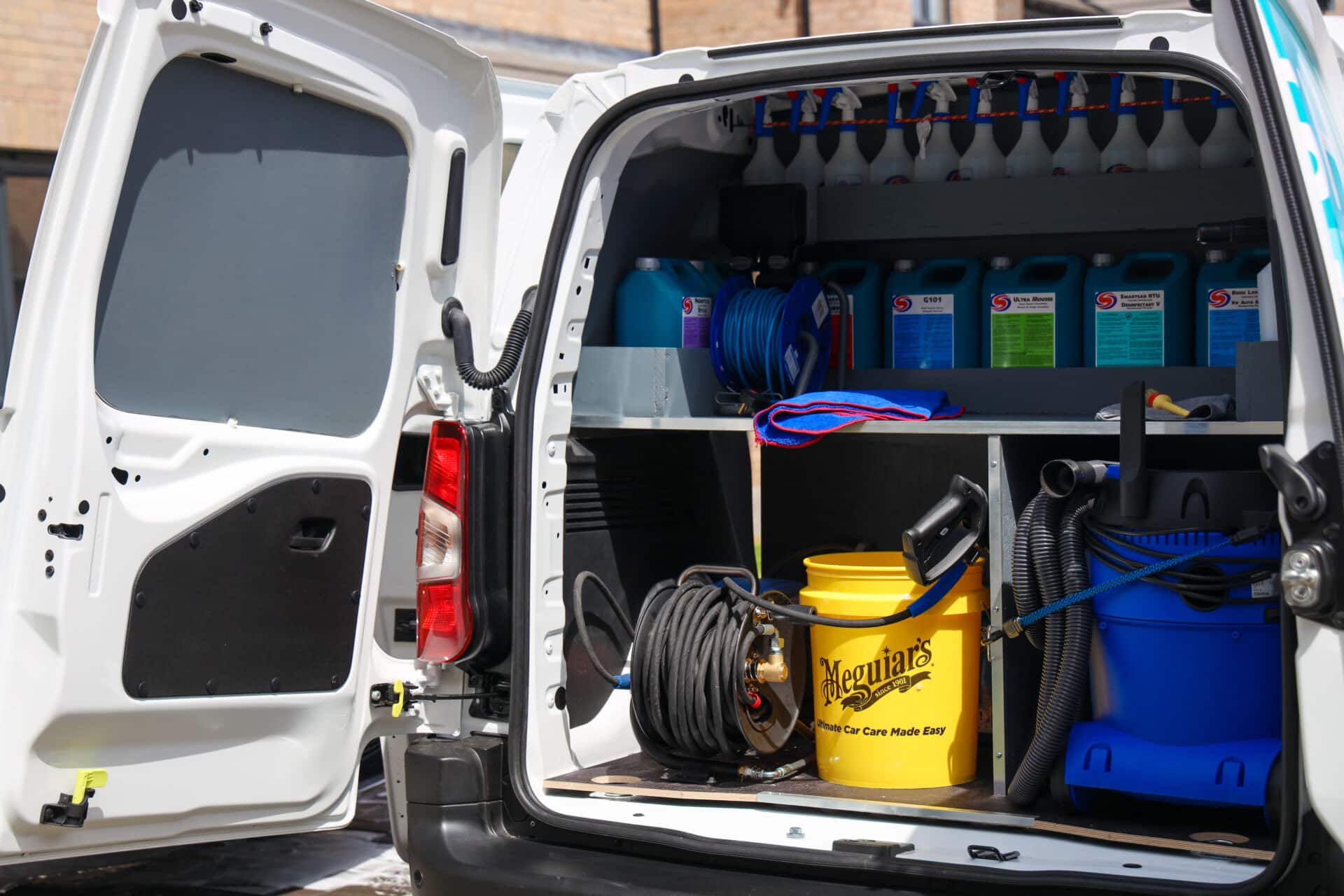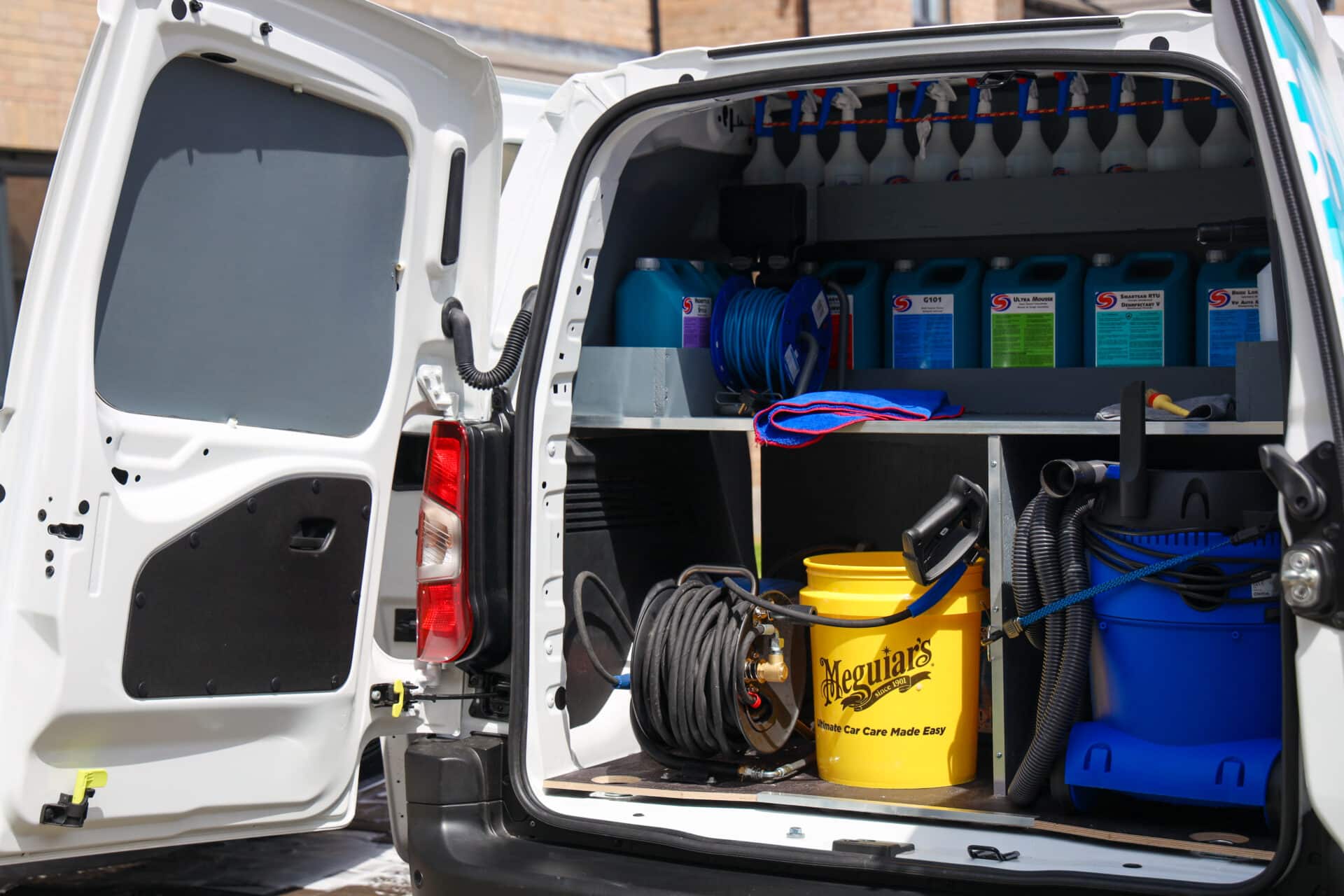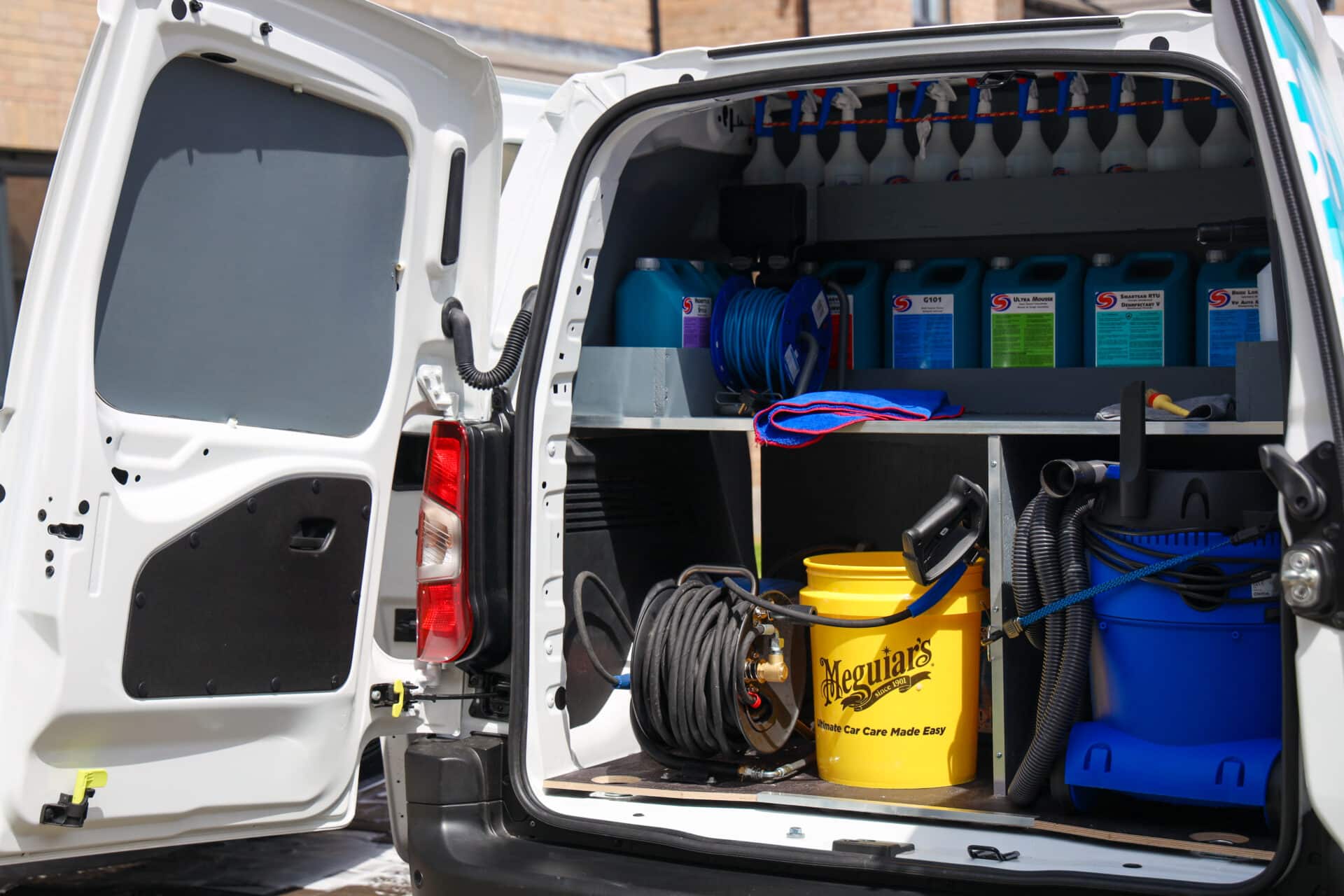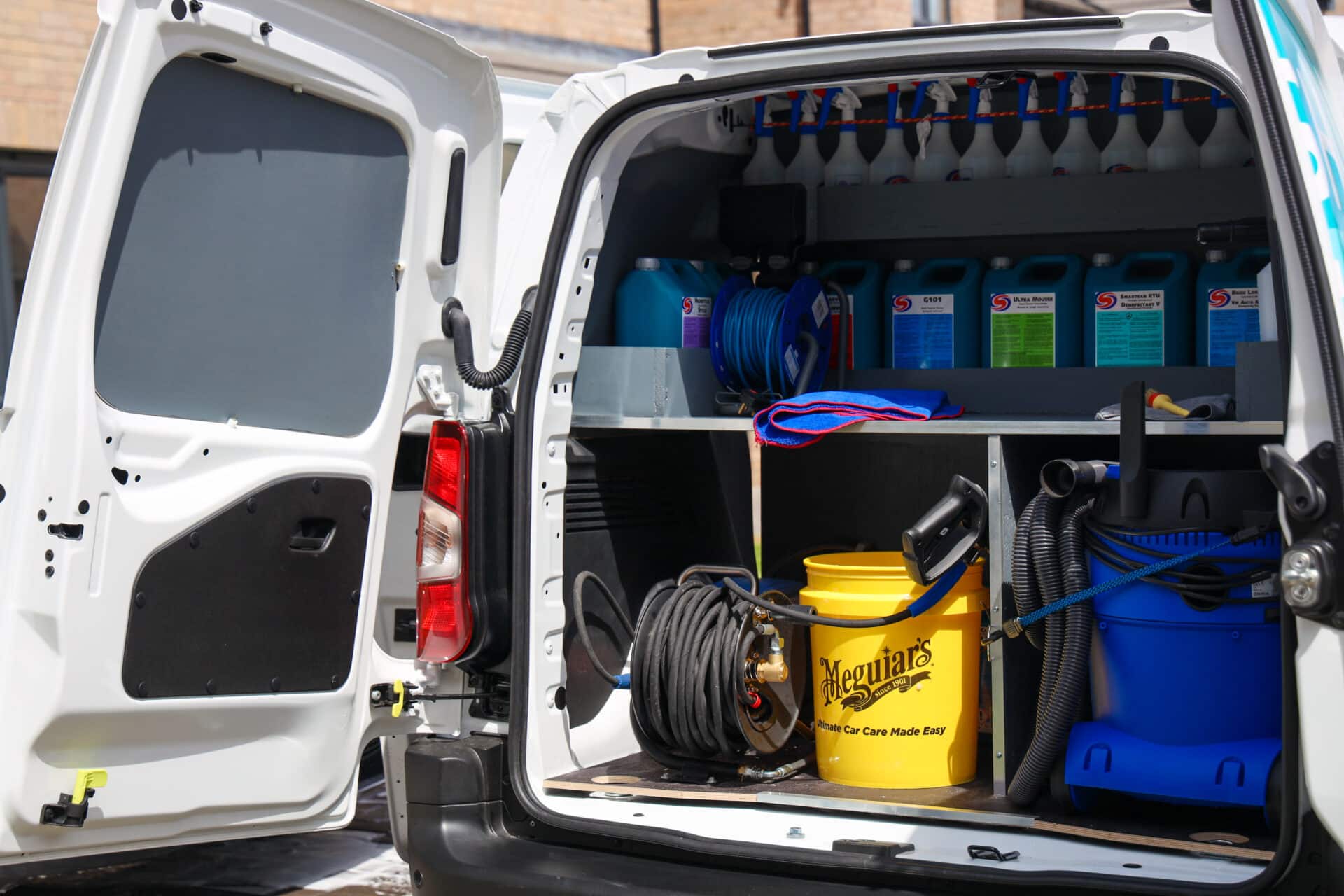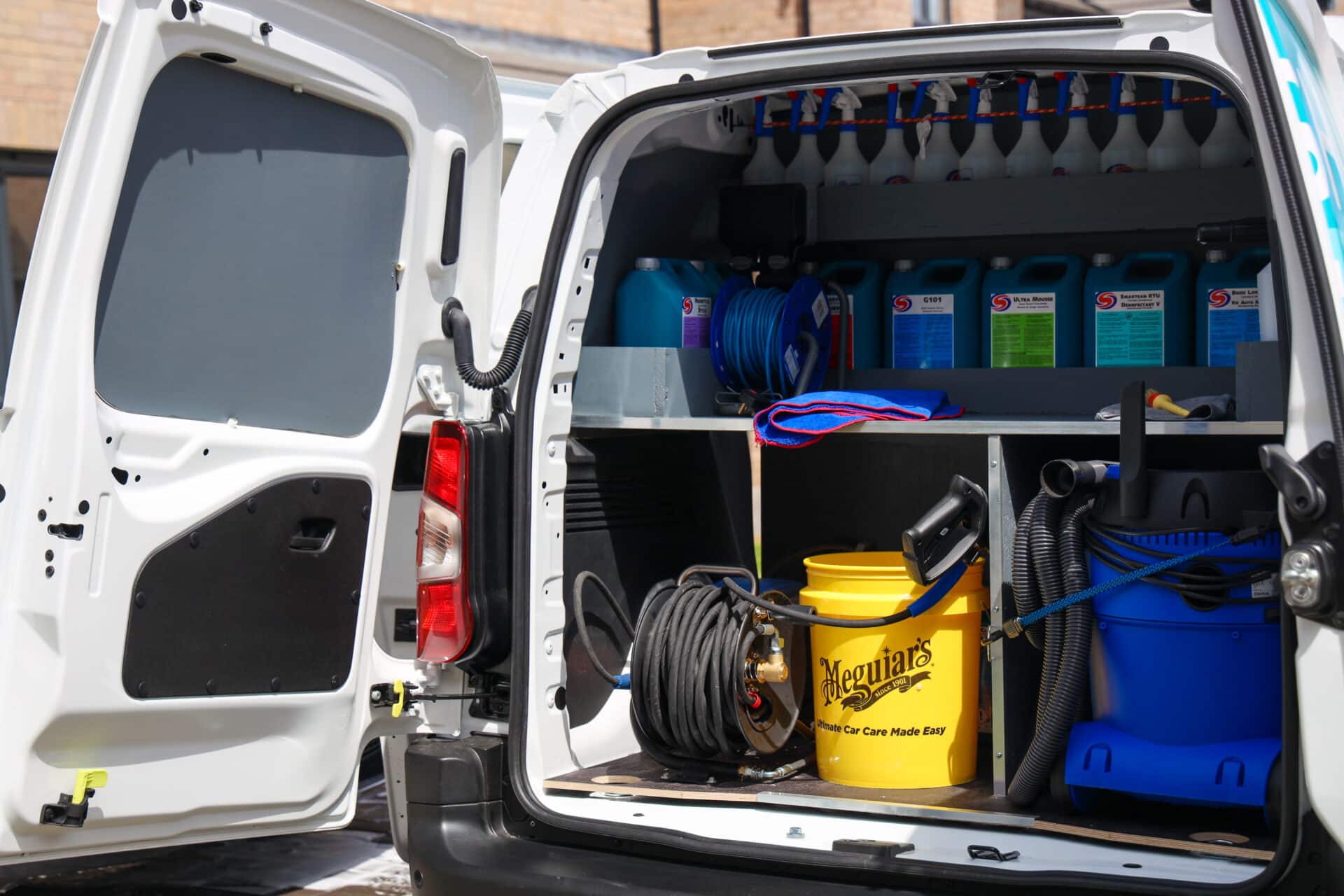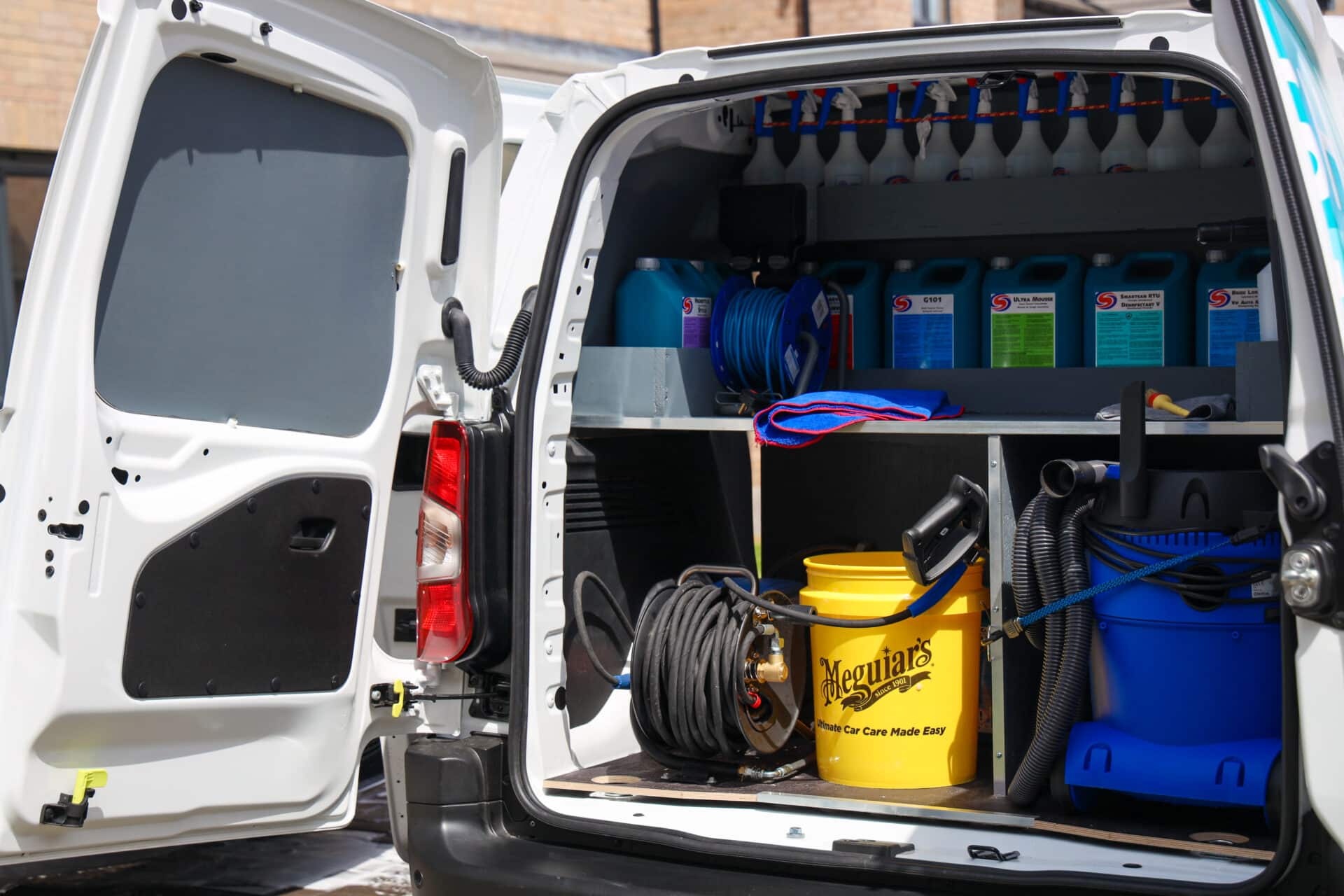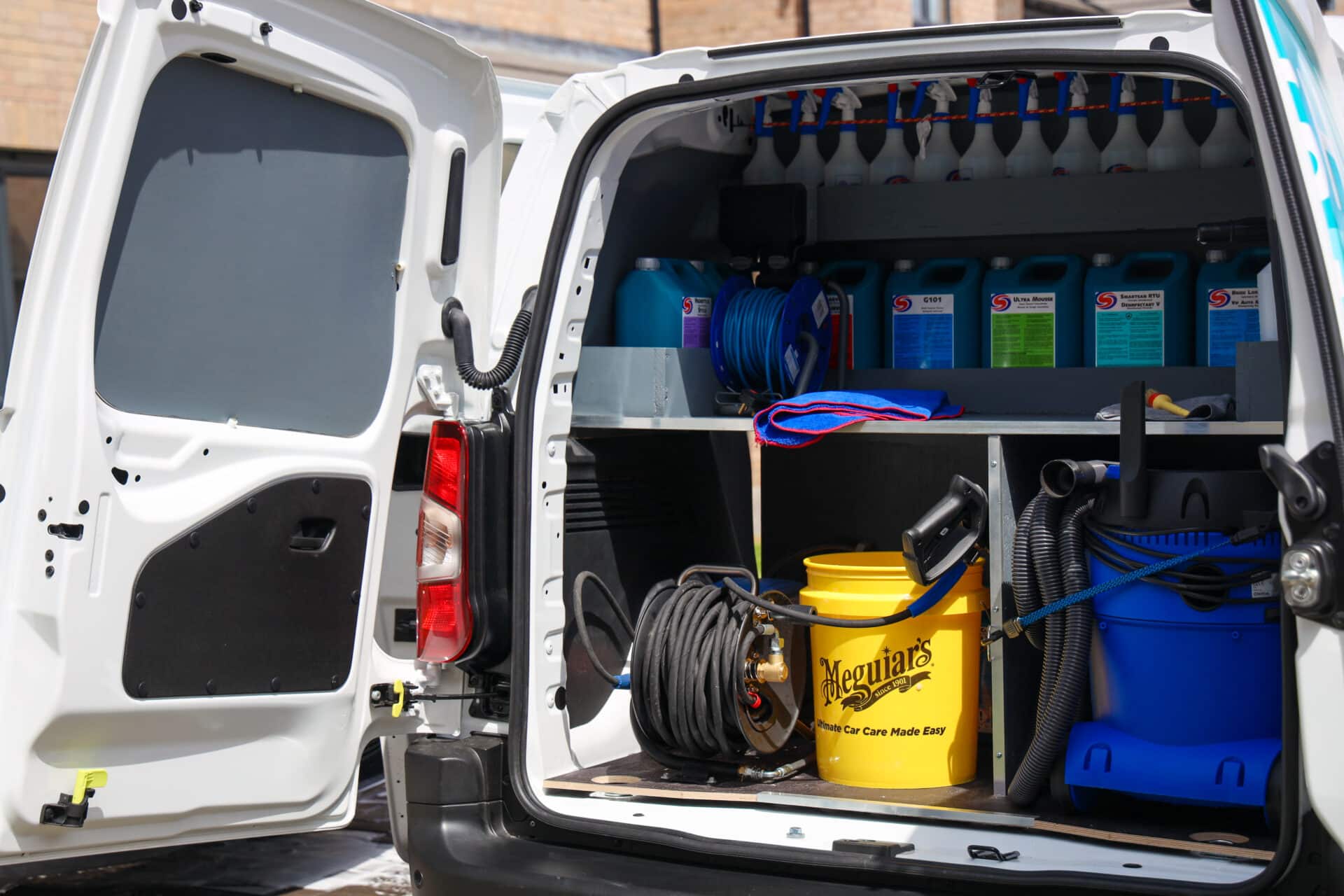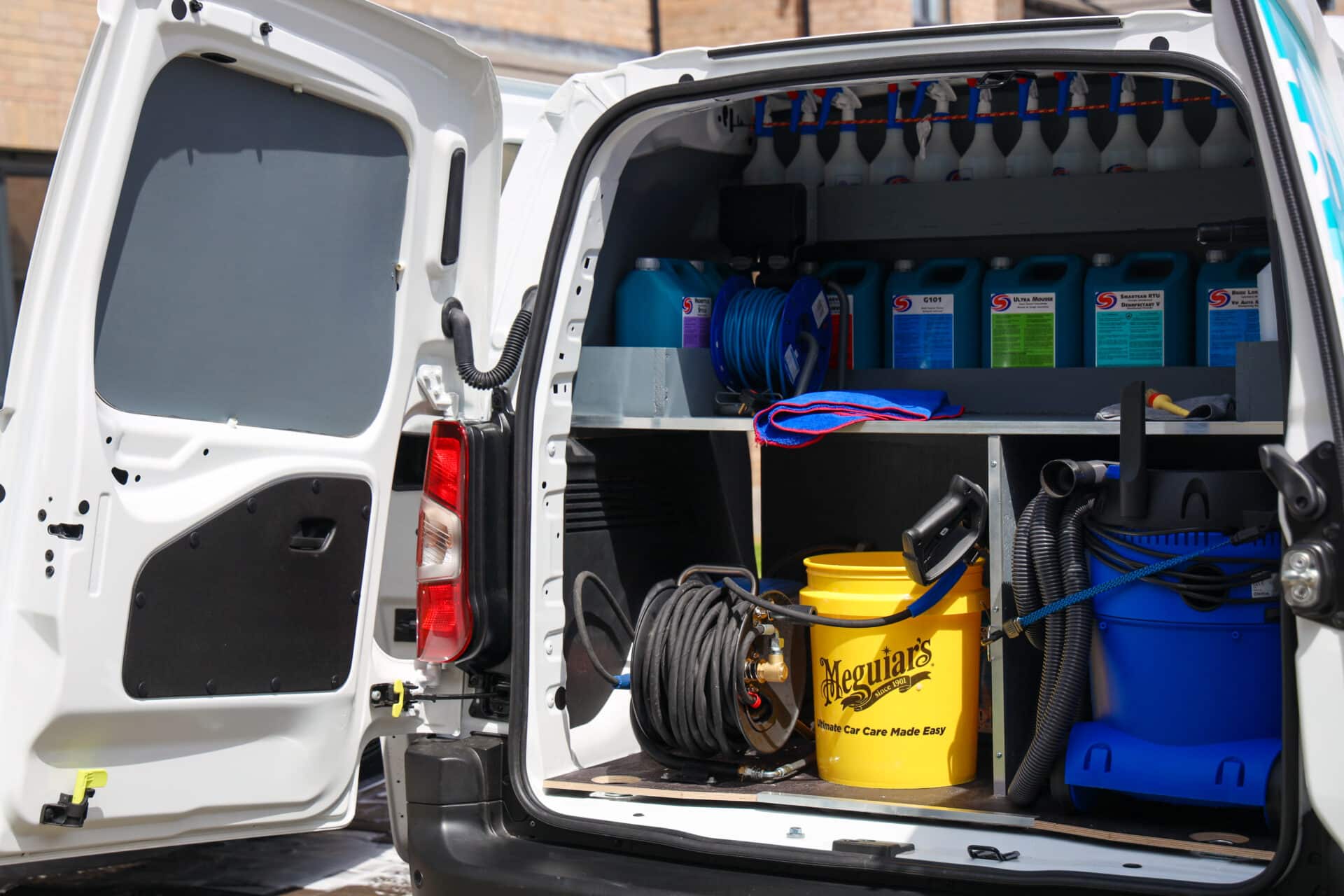Car valeting services have become increasingly popular across the UK, with mobile car valet businesses offering convenient on…
Car Valet Tools and Equipment Insurance: Essential Protection for Mobile and Fixed Valeting Businesses
Car valeting has evolved from a simple car wash service into a sophisticated industry offering everything from basic exterior cleaning to comprehensive paint correction and ceramic coating applications. Whether you operate a mobile valeting service from a van or run a fixed-location car care centre, your business relies heavily on specialized tools and equipment that represent a significant investment. Understanding the importance of proper insurance coverage for these assets is crucial for protecting your livelihood and ensuring business continuity.
Understanding the Car Valeting Industry Landscape
The UK car valeting industry has experienced substantial growth, driven by increasing consumer awareness of vehicle maintenance and the rising value of modern vehicles. Professional valeters now use sophisticated equipment ranging from pressure washers and steam cleaners to paint correction machines and ceramic coating application tools. This equipment can easily represent investments of £10,000 to £50,000 or more for established businesses.
Mobile valeting services face unique challenges as they transport valuable equipment between locations, while fixed-location businesses must protect against theft, vandalism, and accidental damage. Both business models require comprehensive insurance strategies that go beyond basic public liability coverage.
Types of Equipment Requiring Insurance Coverage
Cleaning Equipment
Professional-grade pressure washers, steam cleaners, wet and dry vacuum systems, and foam cannons form the backbone of any valeting operation. These items are not only expensive to replace but are essential for daily operations. A stolen or damaged pressure washer could halt business operations immediately.
Paint Correction Tools
Dual-action polishers, rotary machines, paint thickness gauges, and various grades of polishing compounds represent significant investments. These tools require specialized knowledge to operate effectively and are often targeted by thieves due to their high resale value.
Detailing Supplies and Chemicals
Professional-grade waxes, sealants, ceramic coatings, and cleaning chemicals can represent thousands of pounds in stock. Many of these products have limited shelf lives and require specific storage conditions.
Mobile Equipment
For mobile operators, the van or trailer used to transport equipment is equally important. Custom-fitted storage solutions, generators, water tanks, and waste water systems all require protection.
Technology and Accessories
Modern valeting businesses often use tablet computers for customer management, card payment systems, and specialized lighting equipment for paint inspection. These items are particularly vulnerable to theft.
Common Risks Facing Car Valeting Businesses
Theft and Burglary
Car valeting equipment is highly portable and valuable, making it an attractive target for thieves. Mobile operators are particularly vulnerable when equipment is left unattended in vehicles overnight or during breaks between appointments.
Accidental Damage
The nature of valeting work means equipment is constantly moved, set up, and operated in various environments. Pressure washers can be damaged by freezing, polishing machines can be dropped, and chemicals can spill and damage other equipment.
Weather-Related Damage
Mobile valeting services are exposed to weather conditions that can damage electrical equipment. Even covered operations can suffer from humidity, temperature fluctuations, and storm damage.
Vehicle-Related Incidents
For mobile operators, road traffic accidents can result in total loss of equipment. Even minor collisions can damage sensitive equipment through impact or contamination from vehicle fluids.
Customer Property Damage
While not directly related to your equipment, damage to customer vehicles can result in claims that affect your business operations and reputation.
Types of Insurance Coverage Available
Tools and Equipment Insurance
This specialized coverage protects your business equipment against theft, damage, and loss. Policies can be tailored to cover equipment whether it's stored at your premises, in transit, or being used at customer locations.
All Risks Coverage
Comprehensive all risks policies provide the broadest protection, covering your equipment against virtually any cause of loss except those specifically excluded. This type of coverage is particularly valuable for expensive specialized equipment.
Specified Perils Coverage
More affordable than all risks coverage, specified perils policies cover your equipment against named risks such as fire, theft, flood, and accidental damage. While more limited, this coverage can be suitable for businesses with tighter budgets.
Transit Coverage
Essential for mobile valeting services, transit coverage protects equipment while it's being transported between locations. This includes protection during loading and unloading operations.
Business Interruption Insurance
Often overlooked, business interruption coverage can provide income replacement if theft or damage to your equipment prevents you from operating. This coverage can pay for temporary equipment rental and lost profits during the replacement period.
Stock Coverage
For businesses carrying significant inventory of detailing supplies and chemicals, stock coverage protects against loss due to theft, contamination, or spoilage.
Factors Affecting Insurance Costs
Business Location
Urban areas with higher crime rates typically result in higher premiums, particularly for theft coverage. Secure storage facilities can help reduce costs.
Security Measures
Investment in security systems, GPS tracking for mobile units, and secure storage can significantly reduce insurance premiums. Many insurers offer discounts for businesses that exceed minimum security requirements.
Claims History
A clean claims record will result in lower premiums, while frequent claims can lead to increased costs or difficulty obtaining coverage.
Equipment Value and Type
Higher-value equipment and specialized tools typically cost more to insure. However, the cost of insurance is usually a small percentage of the equipment's replacement value.
Business Experience
Established businesses with experienced operators often qualify for better rates than new ventures.
Choosing the Right Insurance Provider
Specialist vs General Insurers
Specialist commercial insurers who understand the valeting industry can often provide more appropriate coverage and competitive rates compared to general insurers who may not fully understand the unique risks involved.
Policy Features to Consider
Look for policies that offer new-for-old replacement, worldwide coverage for equipment, and flexible sum insured limits that can be adjusted as your business grows.
Claims Service
The quality of claims service is crucial when you need to get back to business quickly. Research insurers' claims handling reputation and response times.
Additional Services
Some insurers offer risk management services, security advice, and equipment tracking services that can help prevent losses and reduce premiums.
Risk Management Strategies
Security Measures
Implement comprehensive security measures including alarm systems, CCTV, secure storage, and GPS tracking for mobile units. Many insurers require minimum security standards and offer discounts for enhanced protection.
Equipment Maintenance
Regular maintenance and proper storage can prevent many types of damage and extend equipment life. Keep detailed maintenance records as insurers may require evidence of proper care.
Staff Training
Ensure all staff are properly trained in equipment operation and security procedures. Many claims result from improper use or failure to follow security protocols.
Inventory Management
Maintain detailed inventories of all equipment including serial numbers, purchase dates, and values. This information is essential for claims processing and helps ensure adequate coverage limits.
Making a Claim
Immediate Steps
Report thefts to police immediately and obtain a crime reference number. For damage claims, secure the area and prevent further loss. Notify your insurer as soon as possible, ideally within 24 hours.
Documentation Required
Gather all relevant documentation including purchase receipts, maintenance records, photographs of damage, and police reports for theft claims. The more documentation you can provide, the smoother the claims process will be.
Working with Loss Adjusters
For significant claims, insurers may appoint loss adjusters to investigate. Cooperate fully and provide all requested information promptly to avoid delays in settlement.
Industry-Specific Considerations
Mobile vs Fixed Operations
Mobile valeting services face unique challenges including higher theft risk and weather exposure, but may benefit from lower premises-related costs. Fixed operations have more control over security but may face higher property-related risks.
Seasonal Variations
Consider how seasonal variations in business activity affect your insurance needs. You may need higher coverage during peak seasons when you're carrying more stock and equipment.
Franchise Operations
Franchise operators should understand what coverage is provided by the franchisor and what additional protection they need to arrange independently.
Growth Planning
Choose insurance arrangements that can grow with your business. Avoid policies with restrictive terms that might limit expansion or require frequent policy changes.
Cost-Benefit Analysis
Calculating Replacement Costs
Consider not just the purchase price of equipment but also the cost of business interruption while waiting for replacements. Factor in inflation and potential improvements in replacement equipment.
Comparing Insurance Costs
While price is important, don't choose coverage based solely on cost. Consider the insurer's financial strength, claims service reputation, and policy terms.
Self-Insurance Considerations
Some larger operations consider self-insuring smaller losses while maintaining coverage for catastrophic events. This approach requires careful financial planning and may not be suitable for most small businesses.
Future Trends and Considerations
Technology Integration
As valeting businesses increasingly rely on technology for operations and customer management, cyber insurance may become necessary to protect against data breaches and system failures.
Environmental Regulations
Increasing environmental regulations may require specialized coverage for pollution liability and waste disposal issues.
Electric Vehicle Servicing
As electric vehicles become more common, valeting businesses may need to invest in specialized equipment and training, requiring updated insurance coverage.
Conclusion
Car valet tools and equipment insurance is not just a business expense but a crucial investment in your company's future. The right coverage protects against the financial devastation that could result from theft, damage, or loss of essential equipment. By understanding the risks specific to the valeting industry and working with knowledgeable insurance professionals, you can develop a comprehensive protection strategy that allows you to focus on growing your business rather than worrying about potential losses.
Remember that insurance needs evolve as your business grows and changes. Regular reviews of your coverage ensure that protection keeps pace with your investment in new equipment and expansion into new services. The cost of comprehensive insurance coverage is minimal compared to the potential financial impact of operating without adequate protection.
Whether you're just starting out with basic equipment or operating an established business with significant assets, taking the time to properly insure your tools and equipment is one of the most important business decisions you'll make. Contact a specialist commercial insurance broker today to discuss your specific needs and ensure your valeting business has the protection it deserves.


 0330 127 2333
0330 127 2333
